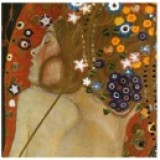Methods and styles of judging poetry
-
Larry Chamberlin
14 years agoAmanda sent me a terrific link to a fellow who provides a very structured manner in which he reviews poetry.
His ideas are not ground-breaking but they are thorough and systematically laid out. I use much of the same criteria he describes, and I am sure many others here do as well; most likely, we each have our own method and follow it regularly.
My questions are directed toward everyone, whether or not you are or ever have been a judge:
1 - What do you think of hoosierpoet's method?
2 - What, if any, method do you use and how would others benefit from it?
Thanks again, Amanda.
http://allpoetry.com/column/7522123-How_To_Rate_and_Judge_Poetry_-by-Hoosierpoet -
Sylvia
14 years agoI had read this before and some of it must have stayed with me. Overall I think it is a good method to judge poetry, gives a lot information for a judge to consider.
I don't know if this influenced me when I read it but it seems that I use portions of this method and I do believe that it would help others. Especially people who might want to be a judge on the site but not sure they know how. It is worth a read by all. -
Larry Chamberlin
14 years agoWhat sort of process do you go through, Sylvia?
-
Sylvia
14 years agoI read the poem to see how it flows, how is the cadence, rhymes, are there words that I don't understand, check use of filler words. I read it again more slowly to see if I was being fair in my first judgment. I look at the title to see if the poem and title have a connection. I ask myself a series of questions. Do I understand the meaning of this poem? Does it grab my attention and hold it? Is it too complicated? Is it visually pleasing? Does it seem that the writer just threw together some words to make a poem?
If I have the luxury, I will go back in a day and read the poem several more times to be sure I have given the writer and poem a fair chance. -
Larry Chamberlin
14 years agoThat's as good a method as you could hope for.
I read through the entire poem first to get a sense of the total work, making note of what strikes me the most and what distracts me. Then I go through and make note of typos and syntax errors (although sometimes they may be deliberate, so I take that possibility into account).
Then I analyze each phrase, line & stanza to understand the message itself. If I can 'get' the poet's message, then I consider how the poem's parts contribute to or take away from the whole.
I used to spend more time discussing meter and beat, but I have long since given up that crusade - at least other than forms that call for a certain structure.
Having gone through that process I focus on the more important conclusions that I hope will provide positive or constructive feedback to the poet. However, in a contest setting, I will be more judgmental, since I am then called upon to 'rank' poems against each other. -
-
Jenni
14 years agoI have to admit that I read this for the first time, but actually I am quite grateful that I came across this. Thanks, Larry and Amanda.
I agree with Sylvia about this method because I think the different points are worth taking a closer look at and judging the poem according to them. Being a judge is a lot of work as it is, but I think this method takes up even more time. I wouldn't know for sure though as I've never been a judge nor do I know the criterias the current judges go through. -
Decayed
14 years agoMm, interesting..
2- for me, i favor judging according to percentages, example:
I read the poem quickly to see if I feel some uniqueness.
Then, I read carefully checking for grammatical errors, structural ones... This would serve for like 40% of my vote.
For the third read, I check for the originality of the content, figurative language, creativity, pace-flow, play on words.. This serves as 60% of the voting.
I think this is fair and constructive much because in this way, id be reviewing the poem through several aspects and giving each detail in the poem its lion share of my vote.
Fair enough? -
Saerelune
14 years agoIt depends. You judge a metaphorical/symbolical poem differently than a straightforward poem. And you judge free verse differently than a rhyming poem. That's why I don't agree on certain percentages, because each facet of judging shouldn't be applied on ALL poems.
If I see that a poem is written in free verse I won't check all the meter, would I? Unless the content of the poem benefits from meter, then the atmosphere of the poem should reflect that. And if I read a Villanelle I'd be more concerned about the way each line connects with each other, than when I read a Didactic.
When I judge a poem, I first take a quick read, so I know what to expect. Then I try to figure out what kind of poem I'm dealing with. This goes into two directions.
First of all I want to know what the intention of the writer is. Does he/she want to bring forth a message, or does he/she want to mystify his/her meaning. And if the message is obviously based on a mythological/historical event, then I'll always do my research before judging. I wouldn't allow myself to misjudge a poem just because I didn't do my research.
On the other hand I also want to know what kind of poem it is, qua technique. If the repetition stands out, I'll take a look at it. If alliteration stands out, I'll take a look at that. I'll ask myself "does this repetition/alliteration benefit the poem, or are they only there for enchantment" I won't say that I expect each and every poem to at least have one stanza full of these common technical devices. Same goes with punctuation and the "fillers" that have been propagating on PnQ.
Poetry lives, so do criteria. The article is excellent, I thoroughly enjoyed reading it, but I don't suggest anyone being too firm about it. After all flexibility should be allowed in art, it's not mathematics we're dealing with. Those points serve as a great guide, but be sure to be guided by experience as well.
I am sorry if I babble too much, or if this wasn't really the "answer" you guys were looking for. =p It's quite late here. -
abracadabra
14 years agoI wish you'd judge the weeklies. Accept the position, damn you!
-
silvershoes
14 years agoMera Luna, you would be an excellent judge.
-
Larry Chamberlin
14 years agoAgreed
Anyone else want to add their 2 ¢? -
abracadabra
14 years agoSure. I like to think of poems, and much of art, as free and living things that speak special and secret languages to those who view them. Wanky, yes, but true. They really are what they are and we really are what we are and there's really no arguing with that. There's no criteria, there's no checklist, no percentages. A good piece of art just hits you somewhere. If there is a necessity to critique it, then it's always ever a top-down approach and not the other way round.
One of the reasons I chose to pursue science instead of something more recognisably "creative" was because science is refreshingly and soothingly evidence-based-- in its purity, it is unbiased and laid bare. I didn't think I would respond as well to my results in an artistic field, marred by discrimination and tamed by being taught.
Don't give poets a checklist to be judged by. Don't give judges criteria to judge with. There is no evidence for beauty. Just choose judges wisely and let the poems do the talking. -
Larry Chamberlin
14 years agoI totally agree that no one should take a method like Hoosierpoet's and slavishly apply it, and certainly no one should use a checklist ever. However, these criteria are being used even if subconsciously. You are certainly affected by the beauty of some poems and the entertainment of others. Even if no specific method is used, new and soon to be judges should be aware of these values.
BTW, you have a jellicle approach to judging. 8-} -
Jordan
14 years agoMy judging style is on a per-poem basis. I don't believe that you can use a specific rubric for art. Poetry is about self expression just as much as it is about structure, symbolism, intelligence, and just general connection with the reader.
This is why it is nice to have a diverse selection of judges because although it is nice to be able to always look at things objectively, we don't always do it.
I might look at 10 poems and say: "I liked these three for their use of diction, I like this one because it sounds archaic, these two because their use of metaphor is phenomenal, this one because flows so incredibly well like smooth vodka down my throat...etc." Then I might see a poem and say: "WOW, this was absolute garbage. It has no style, it flows like a rock tumbling over a hill (and the writer didn't seem to do so on purpose), it overuses cliche (sometimes cliche is good and sometimes bad), and although the words used were smart, it was WAY too wordy."
It's all about perception and not every poem should be handled the same way.
My two cents. -
sibyllene
14 years agoYeah, some of these methods are way more thought-out and consistent than my own processes. I think I just respond to a poem tacitly... it takes me a good deal of effort to articulate WHY I like a poem. (It's way easier to say why I don't like one...) I guess there are some things I generally respond to, like interesting juxtapositions of images, or fresh metaphors, or natural rhythms to the language. Sometimes even two really interesting lines can elevate a poem above the rest. But I don't really actively look for these things - they are either there or they aren't. I'm probably a better reader than I am an editor.
Edit: Mera Luna, you should for reals be a book editor, I think ; ) -
Larry Chamberlin
14 years agoYes, each poem will also affect me differently and in varying levels. On the other hand, I do think it is possible and desirable to know WHY any particular poem has its impact on me. This desire leads to further analysis, not in a checklist manner, but fairly thorough nonetheless.
-
Saerelune
14 years agoThanks Abby and Jane, but I probably won't have the time until May, or so. Because I don't want anything to come in between my finals. Unless you want to help me with science, but even then I'd have to find some German tutor as well. :)
I think we all agree that we shouldn't use a check-list, although some knowledge on poetry is beneficial. I also think that most of you agree that art lives. Do remember we're talking about judging a contest here, though. Besides all the poetic knowledge, a judge should also be able to be objective, which means blocking emotion. Let's say, there's a terribly heartbreaking poem out there, pure and honest, but not matching the quality of an emotionless "excellent" poem ... how should we judge that? I know that's always been a problem for me. We're human beings afters all. Ah, all of this is getting way too complicated, we're at the verge of questioning art now.
Sibs, I'm not really sure what qualities are needed to be an editor, but I've always just had the eye for things and never the hands, if you know what I mean. =p And I'd have to speak English more eloquently.
I like where this thread is going. Knowing how the members would judge a poem is also a way of knowing what the members are actually looking for in the weekly contests. -
sibyllene
14 years agoWow, I don't think I ever realized that English wasn't your first language! Maybe I need to do a better job paying attention, but you certainly seem very eloquent as it is.
I think it's true that in a contest, you would probably give more weight to technical skill than you would when you are simply considering poems that you happen to "like." Of course, maybe the more technically proficient a poet is, the more likely that they will be able to capture and translate an emotion... and that emotion is also something that should be judged.
Hmm, I think I just went in a circle, there. I don't know, I'm tired. -
abracadabra
14 years ago"Let's say, there's a terribly heartbreaking poem out there, pure and honest, but not matching the quality of an emotionless "excellent" poem ... how should we judge that?"
Hmmm. I don't have this issue. I simply like what I like- there is no difference in the context of a contest. I would much prefer the "excellent" poem over an honest and angst-ridden poem. This doesn't mean the excellent poem is emotionless. Every poem is driven by some sort of emotion which is again triggered somehow, importantly, in the reader. Part of the challenge in writing a poem is knowing how to control and pace and portray this emotion in words, in a unique way that many people can relate to it and see subjectively. I regard a direct outpouring of the heart simply as catharsis for the writer alone. This is important, but it can be tedious to read and, in my view, very rarely results in good poetry. -
abracadabra
14 years ago"You cannot take art in any shape or form into a lab and disect it I feel?"
Precisly, Hellon. It shouldn't have to be that way. Though, as Larry keeps pointing out, it is important to know how you judge poetry- on what values- if you're a judge. But it's a top-down approach: first you like it, then you ask why. -
Larry Chamberlin
14 years agoHellon, I agree that poems cannot be dissected as in a lab, but I, personally, deconstruct poems so that I can better determine their meaning.
Much of the discussion so far has focused on what it is about a poem that makes it appeal to us. I'd like to know whether you, or anyone, ever feels called to delve into what it is in YOU that reacts to the poem.
I say this because poems are essentially living messages, like art, whose attraction is not what the poet intends, necessarily, but the impact it has on us, the reader.
For me, as a writer, poetry is quite often a means of taking some issue and working it through until some resolution develops.
As a reader, it is the dialectic, the two way conversation between the subject matter and the poet's expression of it, that makes the poem important to me.
Most poems let you see things in a new way; a good poem makes you smile, a great poem makes you grow, even if just a bit. -
Larry Chamberlin
14 years agoActually, that's what I was getting at: "I can explore this form and use my own imagination to conjure up an impression that is my own, although it may not necessarily be what the artist had in mind"
I think one of the most important components of an abstract style of poem is that it touches us in ways personal, yet because it reaches many people, it communicates to a universal receptor. Like Bob Dylan or Eddie Vedder: their works are both nebulous and starkly vivid. -
Larry Chamberlin
14 years agoNo, I'm saying there is a paradox at times where a vague or hazy poem taps into something in many people that gives a subjective but vivid meaning.
The reader, or listener, provides the meaning much more than the poet. Each person may ascribe a unique message, yet each person feels secure in their own interpretation.
Listen to Yellow Ledbetter (Pearl Jam), or The Gates of Eden (Dylan) for example. There is no single interpretation possible with either song, yet fans argue passionately for their own interpretation. These songs use many archetypes in relationship to others, giving rise to powerful emotions, onto which each person's mind imposes meaning in a way he or she finds to be important. -
Larry Chamberlin
14 years agoI think we all are affected by other's interpretation. I recall when American Pie came out (the song not the movie). I was fascinated by it.
Then they released a version with a DJ speaking over the music, identifying each event McLean sang about. It was devastating - took all the mystery out of it. Ever since then I canot remember my original ideas of the song, just the 'official' interpretation. -
Kevin
14 years agoI shoot from the hip with poetry, it's about the instinctual reaction. I'd be a terrible judge as if I don't like the topic of the poem or how it's handled it could be a work of grammatical and structured genius and I'd still toss it in the trash.
If someone wants to write a poem about how wonderful the flowers are in their garden, they can just piss off.
: ) -
Larry Chamberlin
14 years agoLOL
Is that gardening practice called Pissing Up Daisies?
I do the same thing [re comments, not the garden] most of the time. I don't want to be influenced by their interpretation. But if I feel strongly about my own, I might read theirs first to see whether I'm duplicating. -
Liquid Grace
14 years agoOh my goodness. This is just refreshing to read. Sorry I didn't chime in sooner.
When the topic of judging came up in other threads I really pushed myself to understand the complexities that is judging and in my opinion judging well.
I think Larry has said it as simple as one can. We all know when we like art be it a visual piece or something that we're reading. We know it impacts us and makes us linger. Perhaps even read it over and over again. Art is supposed to impact you first (at least to me) before you fully understand the complex question of 'why'. Be it the composition, the picture painted, reading between the lines.
I found this link that Larry shared, helped me to understand a method of judging a poem. Like anything in this world nothing is ever a must. I would use these as a guideline. Some are born judges while others can get there by learning what to look for, perhaps even learn something new about the tools used in poetry. I found it helped me in a way better communicate how a poem strikes me and articulate an answer to 'Why' I like the poem.
I'm sorry I don't have much time to get into this further. I'm going on the road in a few mins. I just wanted to pop in to say that I love how much everyone has contributed to this thread. Not in a 'Oh I don't like the link either." it's really nice to see how others judge, and critique work. -
Larry Chamberlin
14 years agoWe are products of an interaction between our environment & internal processing. It's the combination that makes it unique.
My brother's favorite saying is the essence of it:
"Your milage will always differ, that what makes the journey interesting."










